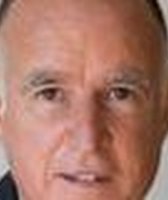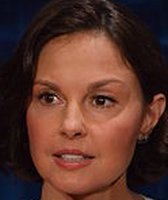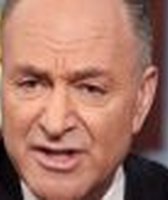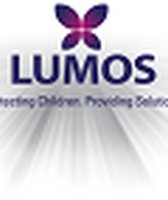Get PolitiFact in your inbox.
Hillary Clinton and Donald Trump faced off in the first presidential debate tonight, hitting familiar notes on the economy, national security and each other’s records.
The two candidates traded attacks that were largely accurate, but they had some trouble with facts when it came to their own records.
Trump repeated false claims that he opposed the war in Iraq and that Clinton’s 2008 campaign started the birther movement. Clinton overstated when she said Trump doesn’t pay federal income tax and understated her own position on trade deals.
Here are 33 claims from Clinton and Trump, fact-checked.
Trump: "They're using our country as a piggy bank to rebuild China."
Earlier this year, Trump claimed that "we’ve rebuilt China." This is an overly simplistic description of the economic relationship between the two countries.
Experts told us China’s rapid economic growth can be largely attributed to its in-house reforms and inclusion in global trade. The United States can take some, but certainly not all, of the credit for the latter. We rated Trump’s claim Half True.
Clinton: Trump’s tax plan would deliver "the biggest tax cuts for the top percent of the people in this country."
This was accurate for Trump’s old tax plan. The top 0.1 percent — those making more than $3.6 million per year — would receive 18 percent of the tax cuts under Trump’s proposal, while the bottom 60 percent will enjoy only 16.4 percent of the cuts.
Clinton: "He started his business with $14 million, borrowed from his father."
Clinton is likely referring to a recent Wall Street Journal report on a 1985 casino-license disclosure. It shows that Trump owed his father and his father’s business about $14 million at the time.
Trump: "My father gave me a very small loan in 1975, and I built it into a company that's worth many, many billions of dollars, with some of the greatest assets in the world."
Since Trump has yet to release his tax returns, it’s hard to gauge just how much money Trump started with and how much he has now.
The "very small loan" Trump was referring to was $1 million from Trump’s father, Fred, to finance his Grand Hyatt hotel in 1978. (At this point, Donald Trump was already president of his father’s real estate company.) But Fred Trump made out many other loans to his son until his death in 1999, including a $70 million construction loan for the Grand Hyatt and a $3.5 million casino chip loan to bail out Trump’s struggling gaming empire, the Washington Post Fact-Checker reported.
Clinton: "In fact, Donald was one of the people who rooted for the housing crisis. He said, back in 2006, ‘Gee, I hope it does collapse, because then I can go in and buy some and make some money.’ Well, it did collapse."
We rated this claim Mostly True. While Trump did not welcome the tragedy of foreclosures for millions of American, he did speak optimistically about the opportunities created for an investor such as himself. Clinton’s statement leaves out that nuance, but in large measure, it matches Trump’s words.
Clinton: "Independent experts have looked at what I've proposed and looked at what Donald's proposed, and basically they've said this, that if his tax plan, which would blow up the debt by over $5 trillion."
According to the free-market oriented Tax Foundation, Trump’s revised tax plan would reduce federal revenue between $4.4 trillion and $5.9 trillion on a static basis or $2.6 trillion to $3.9 trillion. The Committee for a Responsible Federal Budget estimated that Trump’s plan would add $5.3 trillion.
Clinton’s claim is True.
Trump: "I did not" say that climate change is a hoax perpetrated by the Chinese.
Trump did say this in a tweet four years ago. Though he’s since described the tweet as a "joke" and hasn’t pushed the exact theory since, he has repeatedly called climate change a "hoax" in speeches, tweets and media appearances. And he has said as recently as Jan. 18, 2016, that action on climate change "is done for the benefit of China."
We rated his statement Mostly False.
Trump: The Obama administration "has doubled" the national debt in eight years.
PolitiFact Virginia rated a previous version of this claim Half True. While Trump’s figure is correct, he leaves out some key points.
First, Obama is not the only one responsible for the added debt; Congress has to approve as well. Second, the recession that began before Obama took office in 2009 cut government revenues and led to some of the higher debt incurred during the president’s term.
Clinton: "I voted for" some trade deals. "The biggest one, a multinational one known as CAFTA, I voted against."
Clinton has zig-zagged on trade over the years. Out of the 10 trade deals Clinton could have voted on, she voted in favor of six and against two (CAFTA and the Trade Act of 2002). On two other deals (with Peru and Jordan), she didn’t vote but did vouch for them.
Trump: "You go to New England, you go to Ohio, Pennsylvania, you go anywhere you want, Secretary Clinton, and you will see devastation where manufacturing is down 30, 40, sometimes 50 percent."
Trump once accurately said Pennsylvania has lost 35 percent of its manufacturing jobs since 2001. According to the Bureau of Labor Statistics, Pennsylvania lost nearly 300,000 manufacturing jobs since January 2001, decreasing from 856,200 to 564,900 in the span of 15 years. That correlates with a 34 percent decrease in jobs lost.
Trump: "You called (the Trans-Pacific Partnership) the gold standard of trade deals. You said it's the finest deal you've ever seen."
This is Mostly True. Clinton used those words in 2012 when discussing TPP in Australia. It’s worth noting that at this point the deal was still under negotiation and because that was done behind closed doors, there’s no way to know how much it changed. Before the final version came out, she advocated more of a wait-and-see approach.
Trump: "Now, look, we have the worst revival of an economy since the Great Depression."
The accuracy of this claim depends on what you are measuring. Looking at GDP growth, Trump is right. But looking at the employment picture, the 2001 recovery was worse.
Trump: "You will learn more about Donald Trump by going down to the Federal Election Commission" to see the financial disclosure form than by looking at tax returns.
The financial disclosure form Trump is referring to is legally required and extensive. But we found little evidence to support Trump’s argument that the financial disclosure allows observers to "learn more" than they would from a tax form. Tax filings include additional financial information that are not found on other financial disclosures.
His claim rates False.
Clinton: "He's paid nothing in federal taxes, because the only years that anybody's ever seen were a couple of years when he had to turn them over to state authorities when he was trying to get a casino license, and they showed he didn't pay any federal income tax."
This is Mostly False. The records cover five years of returns. They show Trump didn't pay income taxes in two years — 1978 and 1979. But he did pay taxes in 1975, 1976 and 1977.
Clinton: "You've taken business bankruptcy six times."
This is accurate. Trump declared four times within two years in the 1990s, once more in 2004 and once more in 2009. But experts told us Trump shouldn’t bear all the responsibility, as Clinton’s wording suggests, as the majority of bankruptcies happened as the overall casino industry struggled.
Clinton: "You even at one time suggested that you would try to negotiate down the national debt of the United States."
In two separate interviews in May, Trump suggested that he could do something to negotiate federal debt through "discounting" and that he would "refinance debt" and "buy back debt on — at a discount." But he backtracked after criticism, saying his words had been misinterpreted. We rated Clinton’s claim Mostly True.
Clinton: "The gun epidemic is the leading cause of death of young African-American men, more than the next nine causes put together."
As long as you define "young" as being between the ages of 15 and 24, Clinton’s statement is True, according to CDC data.
Trump: "In Chicago, they've had thousands of shootings, thousands since January 1st. Thousands of shootings."
This is True. According to media reports and gun violence experts, there have been more than 3,000 shooting victims in Chicago so far this year.
Clinton: "It's just a fact that if you're a young African-American man and you do the same thing as a young white man, you are more likely to be arrested, charged, convicted, and incarcerated."
The research suggests that when you compare what happens to black and whites who are engaging in the same illegal activity and have the same criminal history, African Americans are more likely to be arrested, more likely to face tougher charges, and more likely to receive longer sentences than their caucasian counterparts. This claim is True.
Trump: "I do want to bring up the fact that you were the one that brought up the words superpredator about young black youth."
This is Mostly True. While supporting her husband’s 1994 crime legislation, Clinton did use the term "superpredator" in reference to "gangs of kids." She did not explicitly say African-American youth, but the context of her speech and her subsequent apology decades later suggests it was a reasonable inference.
Trump: Top Clinton advisors "were pressing" birther movement stories "very hard."
Trump invoked Clinton advisor Sidney Blumenthal and 2008 campaign manager Patti Solis Doyle as evidence.
A reporter has claimed Blumenthal pushed the birther story to him in the heat of the Democratic primary that year. But Blumenthal denies it, and the reporter acknowledged he has nothing in writing. Doyle suggested on CNN that the campaign fired a volunteer for forwarding an email that promoted the "conspiracy" but later clarified that the conspiracy was about Obama’s religion, not birthplace.
We rated Trump's claim False.
Clinton: "Donald started his career back in 1973 being sued by the Justice Department for racial discrimination because he would not rent apartments in one of his developments to African-Americans."
This is True. The government in 1973 accused Trump, his father and Trump Management of violating the Fair Housing Act, part of the Civil Rights Act of 1968. The case alleged Trump’s realty company discriminated against non-white tenants and potential tenants at numerous apartment complexes.
Trump: "I settled that lawsuit with no admission of guilt."
This is also accurate. Trump and the government settled the claim in 1975, and his company agreed to train employees to comply with housing discrimination requirements. Trump never admitted guilt in the case.
Clinton: "I was so shocked when Donald publicly invited Putin to hack into Americans. That is just unacceptable."
We rated this claim Half True. At a press conference in Florida, Trump said he hoped Russia was able to find "the 30,000 emails that are missing." This was a reference to Clinton’s emails, not Americans’ emails more broadly. Trump later said he was being sarcastic.
Trump: "I've been saying for a long time, and I think you'll agree, because I said it to you once, had we taken the oil -- and we should have taken the oil -- ISIS would not have been able to form either, because the oil was their primary source of income."
Trump is right that he’s been floating this proposal for a long time, and that oil is a big revenue source for the terrorist group. But when we looked at whether the United States should take the oil, experts told us the idea is not only an endorsement of imperialism, but it’s nonsensical and illegal with massive practical challenges.
Clinton: "He actually advocated for the actions we took in Libya and urged that Gadhafi be taken out, after actually doing some business with him one time."
Clinton’s claim is largely accurate. We actually didn’t find that many comments from Trump about Libya. But when he did speak, he was emphatic. In 2011, before the first bombing runs, Trump said, "We should go in, we should stop this guy."
And Trump himself has acknowledged that he leased land to Gadhafi when the Libyan leader visited New York for a United Nations meeting in 2009.
Trump: "I'm all for NATO. But I said they have to focus on terror, also. And they're going to do that. And that was — believe me — I'm sure I'm not going to get credit for it — but that was largely because of what I was saying and my criticism of NATO."
This is False. The change he referred to was the creation of a new intelligence post — an incremental change in how the alliance addresses terrorism. It’s been engaging in counter-terrorism measures for more than 30 years.
Trump: "I did not support the war in Iraq. ...The record shows that I’m right."
The record shows the \opposite. Trump did not comment much on the invasion at the time, and was vague when he did it.
In 2002, asked if America should go to war, he said, "I guess so." Less than three months before the invasion, Trump said the president should be more focused on the economy, but he didn’t specifically speak against launching an attack. He didn’t voice full-throated opposition until almost a year and a half after the invasion. We rate this claim False.
Clinton: "John Kerry and President Obama got a deal that put a lid on Iran's nuclear program without firing a single shot."
If you define "got a lid" as "keep in check," then Clinton has a plausible case. Though there are a lot of uncertainties about how well the accord will hold up, experts said the deal is both effective and close to the best outcome the United States could have achieved. Clinton’s claim is Mostly True.
Trump: "We defend Japan, we defend Germany, we defend South Korea, we defend Saudi Arabia, we defend countries. They do not pay us."
We’ve looked into his claim about South Korea before (in 2016 and in 2011). It’s not accurate. Currently, South Korea pays well over $800 million annually to support the United States’ troop presence.
Trump: "China is totally powerful as it relates to North Korea."
During a Republican primary debate, Trump claimed China has "total control" over North Korea. That’s Mostly False. Though China does have significant economic ties to North Korea, Trump is exaggerating the amount of leverage it has. The fact that North Korea conducted a nuclear test over the strenuous objections of China suggests that Beijing lacks anything approaching "total control" over North Korea.
Trump: The Obama administration’s payment to Iran was "one of the great giveaways of all time, of all time, including $400 million in cash. Nobody's ever seen that before. That turned out to be wrong. It was actually $1.7 billion in cash, obviously, I guess for the hostages. It certainly looks that way."
We rated a previous claim from Trump — that the $400 million was "ransom" — Mostly False. On the same day as several American prisoners were released, the United States paid Iran $400 million. But experts told us this wasn’t ransom.
Iran had a legitimate claim to the money,because the United States owed it to Iran as part of a resolution to a decades-long financial dispute. It’s unclear whether the prisoner and financial disputes were connected in just the final hours of the prisoner transfer or if there was more advance coordination.
Clinton: "This is a man who has called women pigs, slobs and dogs, and someone who has said pregnancy is an inconvenience to employers."
This is accurate. Trump used those exact words to describe Rosie O’Donnell, New York Times columnist Gail Collins and Huffington Post founder Arianna Huffington. He also called a lawyer who had to pump breast milk "disgusting."
In a 2004 interview with NBC’s dateline, Trump said this about pregnant women: "The fact is it is an inconvenience for a person that is running a business."
Our Sources
Listed inside the story.










































